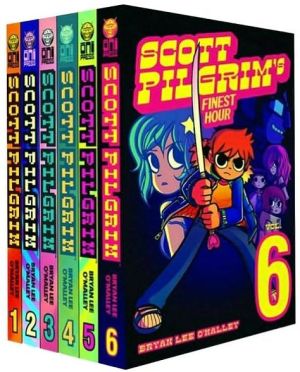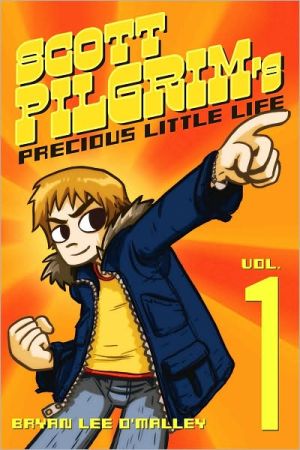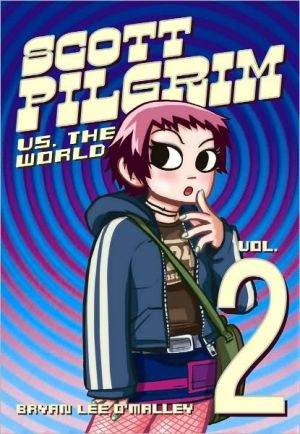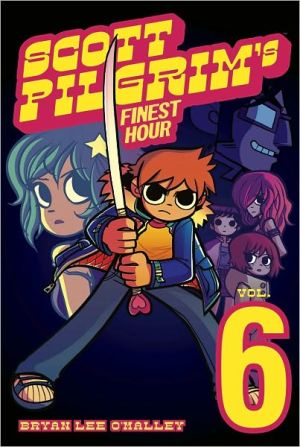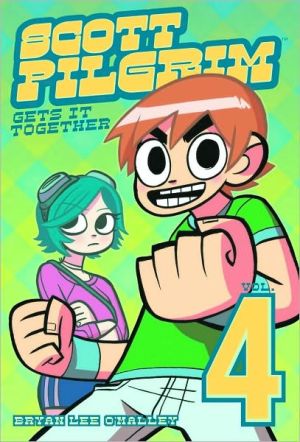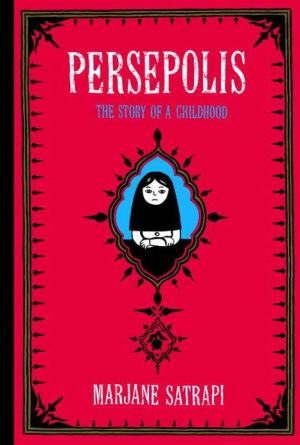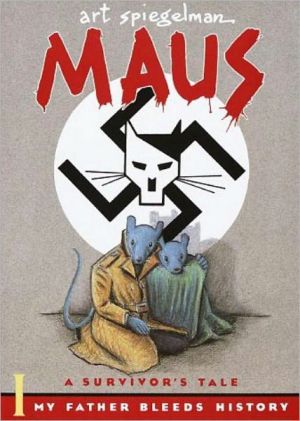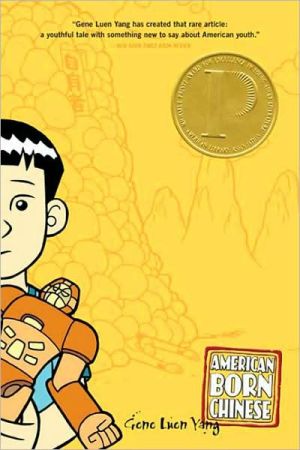Shortcomings
The 2007 New York Times Book Review Notable Book now in paperback\ Lauded for its provocative and insightful portrayal of interpersonal relationships, Adrian Tomine’s politically charged Shortcomings was one of the most acclaimed books of 2007. Among many interviews and reviews in outlets around the country, Tomine was interviewed by Terry Gross on NPR’s Fresh Air and also in The Believer, New York magazine, and Giant Robot. Shortcomings landed on countless “best of” lists, including those in...
Search in google:
The 2007 New York Times Book Review Notable Book now in paperbackLauded for its provocative and insightful portrayal of interpersonal relationships, Adrian Tomine’s politically charged Shortcomings was one of the most acclaimed books of 2007. Among many interviews and reviews in outlets around the country, Tomine was interviewed by Terry Gross on NPR’s Fresh Air and also in The Believer, New York magazine, and Giant Robot. Shortcomings landed on countless “best of” lists, including those in Entertainment Weekly and The New York Times; was praised by Junot Díaz in Publishers Weekly; and was the subject of a solo review in The New York Times Book Review that drew comparison between Tomine and Philip Roth. The groundbreaking graphic novel now returns in paperback.The New York Times - Jim WindolfThe author is an expert at hooking the reader without tricks or obvious effort, and you'll be tempted to buzz through Shortcomings in an hour. But you'll want to slow down to take in the detailed black-and-white panels that casually document the way we live now. Tomine has always been attracted to love gone wrong among the hesitant young men and women of the bourgeois-bohemian set, but he gets his subject across in the unsentimental style of an anthropologist's report. Unlike the more playful graphic novelists who influenced him, Daniel Clowes (Ghost World, David Boring) and the Hernandez brothers (Love and Rockets), Tomine isn't given to flights of surrealism, rude jests or grotesque images. He is a mild observer, an invisible reporter, a scientist of the heart. His drawing style is plain and exact. The dialogue appearing inside his cartoon balloons is pitch-perfect and succinct. He's daring in his restraint.
\ Jim WindolfThe author is an expert at hooking the reader without tricks or obvious effort, and you'll be tempted to buzz through Shortcomings in an hour. But you'll want to slow down to take in the detailed black-and-white panels that casually document the way we live now. Tomine has always been attracted to love gone wrong among the hesitant young men and women of the bourgeois-bohemian set, but he gets his subject across in the unsentimental style of an anthropologist's report. Unlike the more playful graphic novelists who influenced him, Daniel Clowes (Ghost World, David Boring) and the Hernandez brothers (Love and Rockets), Tomine isn't given to flights of surrealism, rude jests or grotesque images. He is a mild observer, an invisible reporter, a scientist of the heart. His drawing style is plain and exact. The dialogue appearing inside his cartoon balloons is pitch-perfect and succinct. He's daring in his restraint.\ —The New York Times\ \ \ \ \ Publishers WeeklySignatureReviewed byJunot DíazTomine's lacerating falling-out-of-love story is an irresistible gem of a graphic novel.Shortcomingsis set primarily in an almost otherworldly San Francisco Bay Area; its antihero, Ben Tanaka, is not your average comic book protagonist: he's crabby, negative, self-absorbed, über-critical, slack-a-riffic and for someone who is strenuously "race-blind," has a pernicious hankering for whitegirls.His girlfriend Miko (alas and tragically) is an Asian-American community activist of the moderate variety. Ben is the sort of cat who walks into a Korean wedding and says, "Man, look at all these Asians," while Miko programs Asian-American independent films and both are equally skilled in the underhanded art of "fighting without fighting." As you might imagine, their relationship is in full decay. In Tomine's apt hands, Tanaka's heartbreaking descent into awareness is reading as good as you'll find anywhere. What a relief to find such unprecious intelligent dynamic young people of color wrestling with real issues that they can neither escape nor hope completely to understand.Tomine's no dummy: he keeps the "issues" secondary to his characters' messy humanity and gains incredible thematic resonance from this subordination. Tomine's dialogue is hilarious (he makes Seth Rogan seem a little forced), his secondary characters knockouts (Ben's Korean-American "only friend" Alice steals every scene she's in, and the Korean wedding they attend together as pretend-partners is a study in the even blending of tragedy and farce), and his dramatic instincts second-to-none.Besides orchestrating agripping kick-ass story with people who feel like you've had the pleasure/misfortune of rooming with, Tomine does something far more valuable: almost incidentally and without visible effort (for such is the strength of a true artist) he explodes the tottering myth that love is blind and from its million phony fragments assembles a compelling meditation on the role of race in the romantic economy, dramatizing with evil clarity how we are both utterly blind and cannily hyperaware of the immense invisible power race exerts in shaping what we call "desire."And that moment at the end when the whiteboy squares up against Ben, kung-fu style: I couldn't decide whether to fold over in laughter or to hug Ben or both. Tomine accomplishes in one panel of this graphic novel what so many writers have failed to do in entire books. In crisp spare lines, he captures in all its excruciating, disappointing absurdity a single moment and makes from it our world.(Oct.)Junot Díaz's first novel,The Brief Wondrous Life of Oscar Wao, has just been published by Riverhead. Copyright 2007 Reed Business Information\ \ \ School Library JournalGr 10 Up\ Ben Tanaka is a Japanese American in his late 20s, living in Berkeley and working in a movie theater. His confusion and frustration with his girlfriend, Miko, are compounded when she moves to New York for a four-month internship at a film institute, leaving him to have some "time off" from their relationship. The women in his life now include his best friend, Alice, a Korean lesbian; a beautiful, white bisexual who chooses her ex-girlfriend over him; and a performance artist who delights in photographing her own urine and having sexually explicit musical stage shows, but finds kissing icky because of germs. When Ben goes to New York with Alice, he finds that Miko has hooked up with a photographer and isn't in the city for an internship at all. Tomine uses an understated drawing style that is simple yet effective, and fits well with characters who are intelligent, reflective, and honest. In addition to tackling modern relationships and racial politics, pop culture, art, and cinema are also discussed. Ben acts as an Everyman, standing in for all Americans of mixed ethnicity and the confusion that often surrounds a person divided between two worlds. The wordless final frames speak volumes for his quiet contemplation, and many readers will identify with his struggle.-Jennifer Waters, Red Deer Public Library, Alberta, Canada\ Copyright 2006 Reed Business Information.\ \

